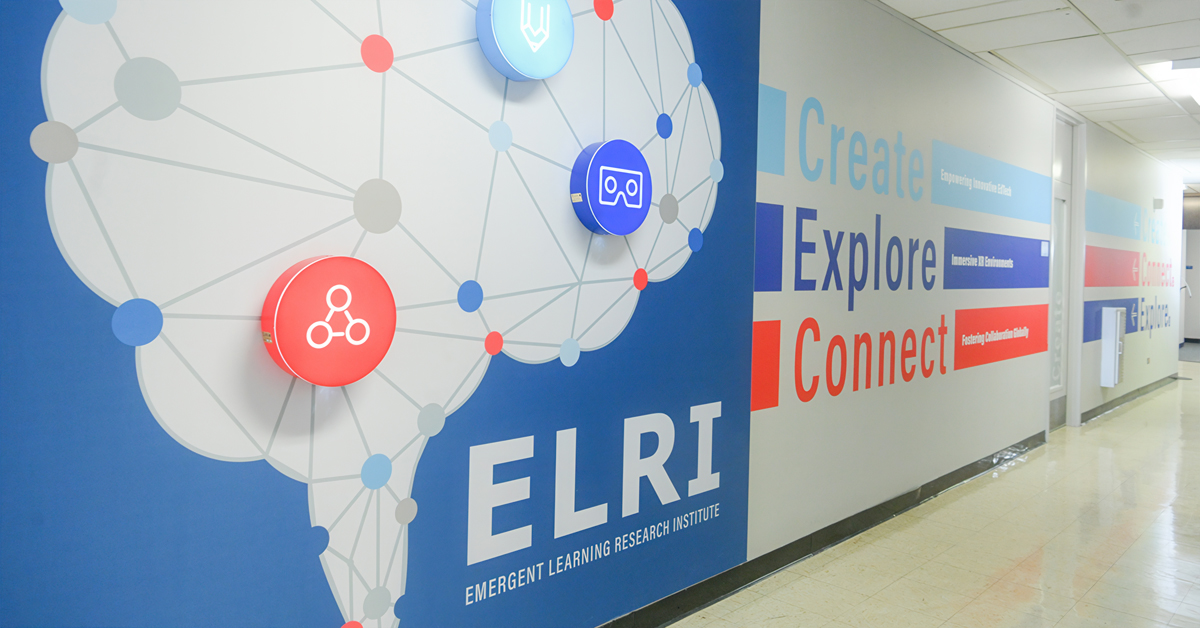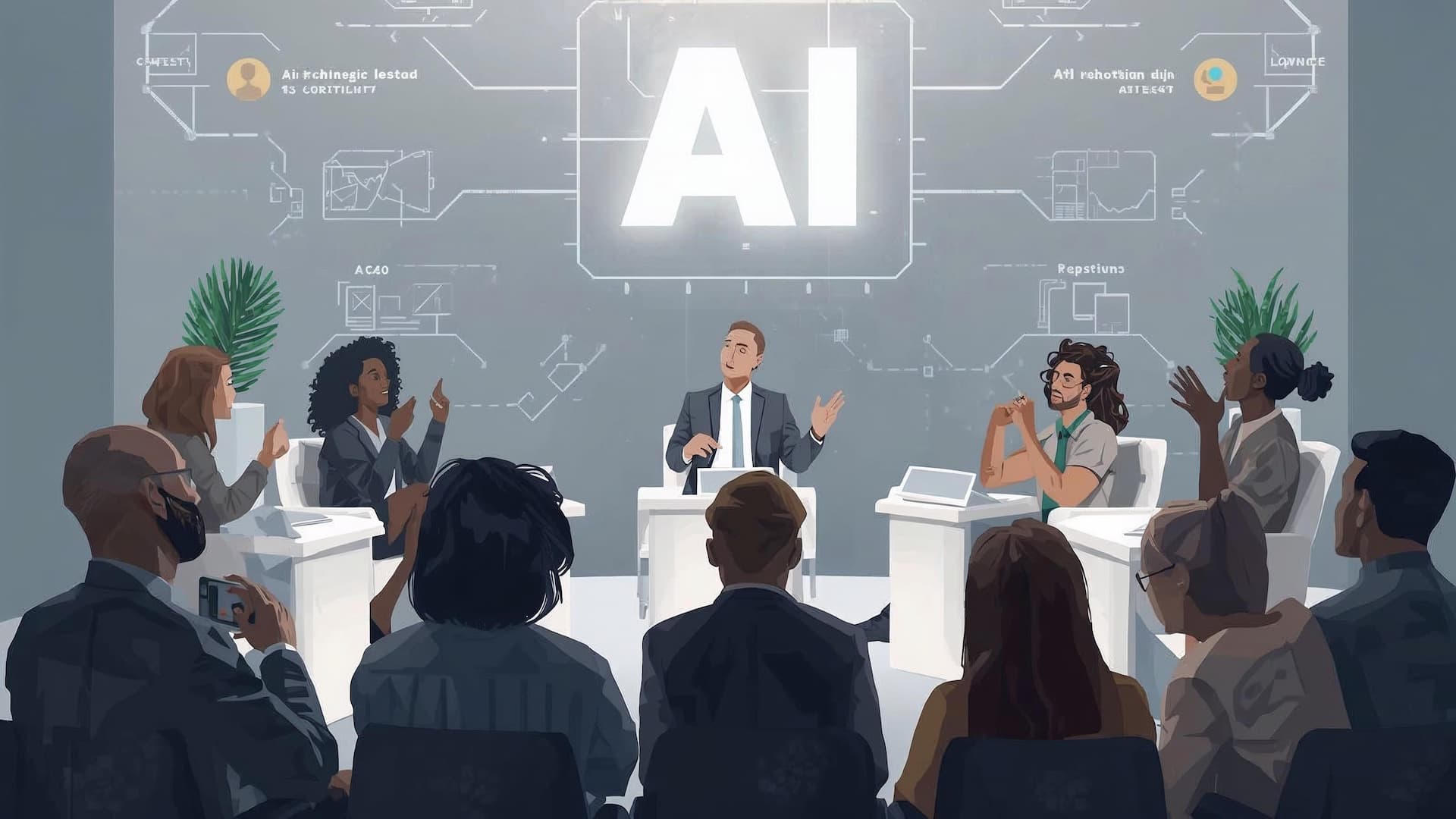ELRI and Lincoln Parish Schools launch new project to elevate reading skills – Louisiana Tech University

Project Report: Advancing Early Literacy and Sustainable Development Goals through AI-Powered Educational Innovation
Executive Summary
A strategic partnership between the Emergent Learning Research Institute (ELRI) at Louisiana Tech University’s College of Education and Human Sciences (CEHS) and Lincoln Parish Schools has launched a new phase of the Solid Foundations Project. This initiative, titled Project Read.AI, leverages artificial intelligence to enhance foundational reading skills for PreK-3 students. The project directly supports the achievement of several Sustainable Development Goals (SDGs), most notably SDG 4 (Quality Education), by promoting inclusive, equitable, and innovative educational practices. It also aligns with SDG 9 (Industry, Innovation, and Infrastructure), SDG 10 (Reduced Inequalities), and SDG 17 (Partnerships for the Goals).
Project Overview and Alignment with SDG 4: Quality Education
The project commenced in mid-October, encompassing six elementary schools within Lincoln Parish. Its implementation is designed to create a significant impact on the local education ecosystem.
- Scope: The initiative serves approximately 1,390 students, 60 preservice teachers, four university literacy faculty members, and numerous literacy coaches.
- Objective: The primary goal is to strengthen literacy instruction and support individualized learning, ensuring all young learners have the foundational skills for future academic success. This directly addresses SDG Target 4.1, which aims for effective learning outcomes in primary education.
- Teacher Development: By training preservice teachers in the use of diagnostic technology and data-driven instruction, the project contributes to SDG Target 4.c, which focuses on increasing the supply of qualified teachers.
Technological Innovation and Contribution to SDG 9: Industry, Innovation, and Infrastructure
Project Read.AI represents a significant step in upgrading educational infrastructure through technological innovation, a core component of SDG 9. The initiative integrates science-based reading practices with advanced AI platforms to create a robust, modern learning environment.
- AI Tutor: Delivers personalized reading interventions tailored to each child’s unique needs.
- Decodable Generator: An AI-powered tool that assists educators in creating customized instructional materials.
- University of Florida Literacy Institute (UFLI) Portal: A platform that supports the implementation of evidence-based literacy instruction.
These tools empower educators with immediate feedback and tailored strategies, enhancing the technological capabilities of the education sector in line with SDG Target 9.5.
Fostering Equity and Reducing Inequalities (SDG 10)
By providing resources that cater to individual learning paces and needs, Project Read.AI is instrumental in reducing educational disparities. The AI-enhanced tools enable teachers to identify and support struggling readers with targeted interventions, ensuring no child is left behind. This commitment to personalized education promotes inclusive learning environments and contributes to the broader goal of reducing inequalities, as outlined in SDG 10.
Strategic Partnerships for the Goals (SDG 17)
The Solid Foundations Project is a model of a multi-stakeholder partnership, reflecting the collaborative spirit of SDG 17. The success of the initiative is built upon the cooperation between various entities committed to educational advancement.
- Academic Institutions: The Emergent Learning Research Institute and the College of Education and Human Sciences at Louisiana Tech University provide research and pedagogical expertise.
- Public Sector: Lincoln Parish Schools serves as the implementation partner, grounding the research in a real-world educational context.
- Civil Society: Generous donors provide the financial support necessary to advance the project’s innovative work.
This collaboration demonstrates how effective partnerships can drive educational innovation and produce tangible benefits for the community, strengthening outcomes for children across the region.
Sustainable Development Goals (SDGs) Addressed in the Article
SDG 4: Quality Education
This is the primary SDG addressed in the article. The entire initiative, the “Solid Foundations Project,” is focused on ensuring inclusive and equitable quality education and promoting lifelong learning opportunities for all. The project’s main goal is to “enhance reading skills among PreK-3 students,” which directly contributes to foundational learning and quality education.
- The project targets early childhood education (PreK-3), a critical stage for developing foundational skills.
- It aims to “improve early literacy outcomes” by using innovative methods like AI-powered tools and science-based reading practices.
- The initiative also focuses on teacher training, equipping “60 preservice teachers” and current educators with the skills to use “data-driven instruction,” thereby improving the quality of teaching.
SDG 17: Partnerships for the Goals
The article explicitly highlights the collaborative nature of the project, which is central to SDG 17. This goal emphasizes the need for partnerships between governments, the private sector, and civil society to achieve sustainable development.
- The project is a formal partnership between a university entity, the “Emergent Learning Research Institute (ELRI) in the College of Education and Human Sciences,” and a public school system, “Lincoln Parish Schools.”
- The article mentions the project is “Supported by generous donors,” indicating a multi-stakeholder collaboration that may include private or civil society actors.
- Quotes in the article reinforce this theme, such as, “Our partnership with Louisiana Tech continues to transform how we approach literacy” and “This collaboration reflects the best of Louisiana Tech — innovation that serves our community.”
Specific SDG Targets Identified
Targets under SDG 4: Quality Education
- Target 4.1: By 2030, ensure that all girls and boys complete free, equitable and quality primary and secondary education leading to relevant and effective learning outcomes.
- The project’s focus on enhancing reading skills for PreK-3 students is a direct effort to ensure children have the foundational literacy necessary to achieve “effective learning outcomes” as they progress through primary education.
- Target 4.6: By 2030, ensure that all youth and a substantial proportion of adults, both men and women, achieve literacy and numeracy.
- The initiative directly addresses this target by aiming to “significantly improve early literacy outcomes.” Strong early literacy is the cornerstone for achieving universal literacy later in life.
- Target 4.c: By 2030, substantially increase the supply of qualified teachers…
- The project actively works towards this target by training “60 preservice teachers” and “numerous literacy coaches.” It equips them with modern, “data-driven, human-centered approaches” and prepares them to “integrate diagnostic technology,” thereby increasing the quality and effectiveness of the teacher workforce.
Target under SDG 17: Partnerships for the Goals
- Target 17.17: Encourage and promote effective public, public-private and civil society partnerships, building on the experience and resourcing strategies of partnerships.
- The article is a case study of this target in action. It describes a public-public partnership between Louisiana Tech University and Lincoln Parish Schools, which is supported by donors, to achieve a common educational goal. The project “exemplifies Louisiana Tech’s commitment to community partnerships that drive educational innovation.”
Indicators for Measuring Progress
Indicators for SDG 4 Targets
- Indicator for Targets 4.1 and 4.6: While the article does not mention a specific metric, it implies that progress is measured by the improvement in early literacy outcomes and reading skills of the students involved. The number of students served, “approximately 1,390 students,” serves as an indicator of the project’s reach.
- Indicator for Target 4.c: The article provides direct quantitative and qualitative indicators for teacher supply and quality.
- The number of preservice teachers and literacy coaches trained (“60 preservice teachers” and “numerous literacy coaches”).
- The adoption and use of innovative teaching tools by educators, such as the “AI Tutor, Decodable Generator, and University of Florida Literacy Institute (UFLI) Portal.”
Indicator for SDG 17 Target
- Indicator for Target 17.17: The primary indicator is the existence and operational success of the multi-stakeholder partnership itself. The article details the roles of the partners (the university providing research and innovation, the school district implementing the program) and notes its continuation into a “new phase,” indicating a sustained and effective collaboration.
Summary of SDGs, Targets, and Indicators
| SDGs | Targets | Indicators Identified in the Article |
|---|---|---|
| SDG 4: Quality Education |
4.1: Ensure quality primary education with effective learning outcomes.
4.6: Achieve literacy and numeracy for all youth and adults. 4.c: Increase the supply of qualified teachers. |
– Improvement in reading proficiency for the 1,390 PreK-3 students served.
– Number of students with enhanced early literacy skills. – Number of educators trained (60 preservice teachers, numerous literacy coaches). |
| SDG 17: Partnerships for the Goals | 17.17: Promote effective public, public-private, and civil society partnerships. |
– The established and ongoing partnership between Louisiana Tech University (ELRI) and Lincoln Parish Schools. – The involvement of multiple stakeholders, including the university, the school district, and donors. |
Source: latech.edu
What is Your Reaction?
 Like
0
Like
0
 Dislike
0
Dislike
0
 Love
0
Love
0
 Funny
0
Funny
0
 Angry
0
Angry
0
 Sad
0
Sad
0
 Wow
0
Wow
0












































































